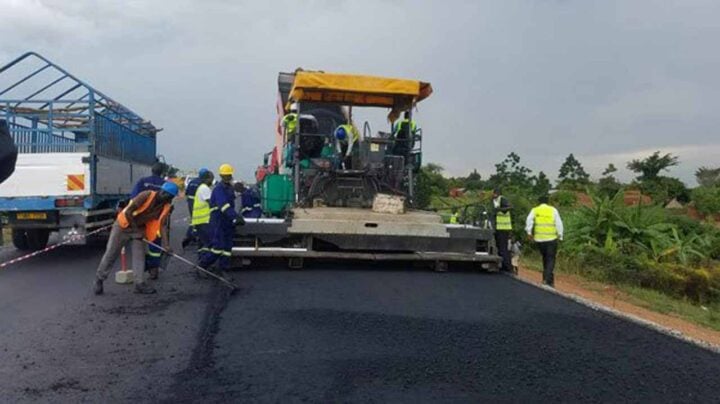In Nigeria, things rarely die of old age, they collapse from neglect and a lack of maintenance. A lot of our roads barely survive a rainy season. Equipment worth millions gather dust because no one budgeted for spare parts. Each year, we spend more rebuilding than sustaining, caught in a cycle of perpetual reconstruction that reveals something deeper than poor planning: a fundamental crisis of national character.
We are a nation wired for the thrill of launching, not the discipline of maintaining and repair. We celebrate completion but forget continuity. The result is a steady erosion of value, material, economic, and moral, that drains our resources and dims our future.
Neglect, when done over time, becomes culture. And that culture shapes how we govern, how we manage and, ultimately, how we live.
The Glamour of the New
Advertisement
Our obsession with new projects has deep roots. In a society where visibility equals validation, leaders compete to commission new projects rather than sustain existing ones. There are no ribbon-cutting for repairs, consistency does not make headlines, and we do not erect statues for the bureaucrat who kept the lights on. In short, maintenance lacks glamour.
So every administration builds its own brand new monuments, renaming roads and edifices, mistaking activity for progress. Meanwhile, previous projects quietly decay.
Nigeria has thousands of abandoned federal projects collectively worth trillions of naira. Not failed projects; abandoned ones. Projects started with pomp, funded partially, then left to rot when political priorities shifted. What we lose is not only money but momentum, the compounding power of continuity that turns infrastructure into wealth and institutions into trust.
Advertisement
The Math We Refuse to Do
The economics are brutal and clear. The World Bank has a simple formula: every dollar spent on maintenance saves four to five dollars in future rehabilitation. Yet we routinely ignore this math.
A bridge that could last fifty years with care weakens in ten. Our four state-owned refineries, once capable of processing 445,000 barrels per day, now stand largely idle after years of “turnaround maintenance” that yielded permanent dysfunction. In the power sector, billions invested in generation plants are neutralized by failing transmission lines.
Walk into most public hospitals and you’ll find brand-new equipment sitting unused because a single part broke and no one budgeted for replacement. The real cost isn’t the replacement part. It is in patients turned away, surgeries postponed, lives lost and permanently altered. Trust is eroded one broken machine at a time.
Advertisement
This keeps Nigeria in permanent emergency mode. We don’t plan or maintain; we panic and replace. And every replacement costs exponentially more than the maintenance we skipped.
The Culture of Expecting Failure
At its heart, maintenance culture is about how a society relates to time, trust, and ownership. Nigerians live short-term because long-term systems have repeatedly failed us.
Talk to any small business owner about their generator. They’ll tell you it breaks down constantly, but they don’t invest in proper servicing because “what’s the point when ‘NEPA’ could come back tomorrow?” Except “NEPA” never reliably comes back, and the generator dies earlier than it should. Repeat this mindset across millions of daily decisions, and you see how a nation learns helplessness.
Advertisement
We build for immediate use, not for legacy. But maintenance is memory, the bridge between past investment and future promise. A nation that cannot maintain is a nation that cannot remember, plan, or sustain.
Citizens surrounded by decay internalize the message that nothing lasts. Our leaders know citizens expect and accept failure, so the incentive to maintain weakens. The citizens know leaders won’t maintain, so they stop demanding it.
Advertisement
The Professionals We Don’t Value
Even if Nigeria woke up with the political will to maintain, we’d face another crisis: we’ve systematically devalued the very people who could do the work.
Advertisement
Ask an average Nigerian parent what they want for their child, and “engineer” might make the list, but only if it means oil or tech. “Doctor” yes. But a “biomedical equipment technician” no. We’ve created a society where the professions that sustain infrastructure are seen as fallback options, not dignified careers.
The result? Under-trained, underpaid, under-respected maintenance professionals. Skilled electricians, mechanics, and engineers either leave for abroad where their expertise is valued, or never enter the field because technical training is stigmatized.
Advertisement
Nigeria’s technical colleges and polytechnics are chronically underfunded and socially dismissed. Meanwhile, the aging generation of skilled technicians, those who learned their craft in the 1970s and 80s, are retiring without passing on their knowledge. We’re losing institutional memory in real-time.
You cannot maintain a nation if you do not respect the people who maintain it. Until technical expertise is celebrated and compensated accordingly, maintenance will remain aspirational rather than operational.
What It Would Take
For Nigeria, the shift requires radical reframing. First, make maintenance visible and trackable. Every major asset should have a digital maintenance record accessible to citizens, when was it last serviced, by whom, at what cost? Second, reward longevity, not novelty. Leaders should be judged not for how many projects they start, but for how long those projects endure. Third, invest in the people who maintain. Revitalize technical education, pay maintenance professionals competitively, and create mentorship programmes that transfer knowledge from retiring experts to young technicians. Finally, embed continuity into governance. Ministries need asset-management frameworks that outlast leadership transitions, establishing projects as the nation’s projects to be sustained regardless of who’s in charge.
But citizens have a role too. When we celebrate continuity as much as novelty, the culture starts to shift.
A Nation That Believes in Tomorrow
Progress unmaintained over time is progress undone. Maintenance is not a technical chore, it is national maturity. It signals whether a nation believes in tomorrow enough to preserve today.
Every nation decides the kind of memory it will leave behind. Nigeria can keep rebuilding the same future, or we can cultivate the habits that sustain it. The first path leads to perpetual reconstruction and generational poverty. The second creates compounding wealth, dignity, and trust.
Until Nigeria treats neglect as the national emergency it is, we will keep rebuilding the same bridges, roads, and systems every generation while other nations build upon theirs.
Imagine a Nigeria where every road is maintained, every school serviced, every hospital equipped and functional, not for praise, but because it is policy. This isn’t naive optimism. It’s a different relationship with time, one that values continuity over novelty, patience over spectacle, stability over applause.
The choice is ours: keep starting over, or finally learn to maintain what we already have.
Oma is a Madrid-based commentator on leadership, culture and change.
Views expressed by contributors are strictly personal and not of TheCable.




